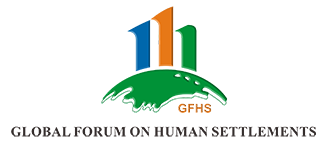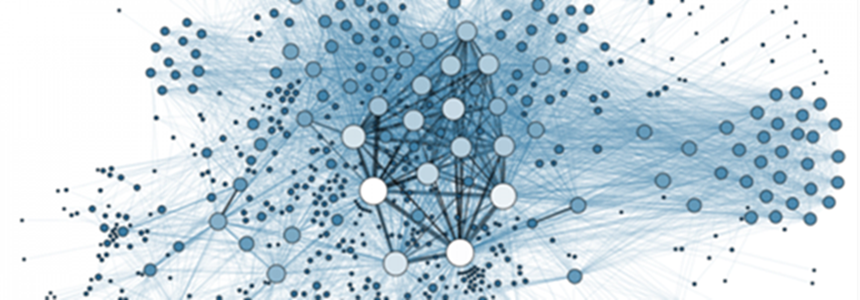


Committed to Sustainable Cities and Human Settlements for All

In Special Consultative Status with ECOSOC
Policy
making "in the dark" - under high levels of uncertainty and without
concrete data - carries high risks and transactional costs which need to be
minimized. End users must be able to access data in a meaningful way.

Photo Credit: Social Network Analysis Visualization
16 February 2017 – Environment Live, the dynamic UN knowledge platform, designed to collect, process and share the world's best environmental science and research, has introduced new tools to review progress towards the implementation of the Sustainable Development Goals.
Built and maintained by UN Environment, the platform provides real-time
open data access to policy makers and the general public, using distributed
networks, cloud computing, big data and improved search functions.
From mapping natural capital to forecasting hydropower to intelligent
energy and the sustainable use of materials, strong data presently exist in a
wide variety of environmental arenas.
The objective is to translate this knowledge into good political and socio-economic
decisions that will contribute to the achievement of the 2030 Agenda.
Indeed, policy making "in the dark" - under high levels of
uncertainty and without concrete data - carries high risks and transactional
costs which need to be minimized. End users must be able to access data in a
meaningful way.
To that end, Environment Live fills gaps between data providers and
consumers. Public access to data is a fundamental element in the transformation
to a vibrant green economy.
Better access allows citizens to better understand - and even participate
in the collection of - data on environmental changes. Indeed, the role of the
public in "citizen science", or the crowd-sourcing of data, is one of
the most cutting-edge and exciting tools emerging in the global research arena.
Environment Live provides people a greater voice in policy development and
monitoring, which is crucial to an inclusive green economy.
Through the platform's applications, multimedia content and digital publishing tools, users will have access to data from multiple verified sources and data providers.
New features of the tool include:
- Integrated support for assessments and policy decision-making at the global, regional and country levels.
- Access to scientific world data, maps and graphs desegregated at the regional, national and local levels and a World Data portal that combines official statistical data obtained from countries and remote sensing satellite imagery. The portal gives access to geospatial information and is supported by a powerful search facility.
- Real time tools for public interaction through communities of practice and access to the latest citizen science and citizen-driven monitoring networks.
Through these tools and resources, the platform will support the streamlining of national monitoring, reporting and verification of data for global and regional environmental goals, including the post-2015 agenda and the Sustainable Development Goals.
UN Environment continues to work with a number of global partners:
- the United Nations Department of Economic and Social Affairs - on implementing frameworks for environmental data and statistics;
- the United Nations Statistics Division - on coordinating support to countries to improve access to information;
- The Food and Agriculture Organization of the United Nations and World Health Organization on integrated indicators for the sustainable development goals;
Together with these partners and the UN regional offices UN Environment advises, which environmental data sets should be prioritized for collection and sharing with the public.
Copyright © Global Forum on Human Settlements (GFHS)
